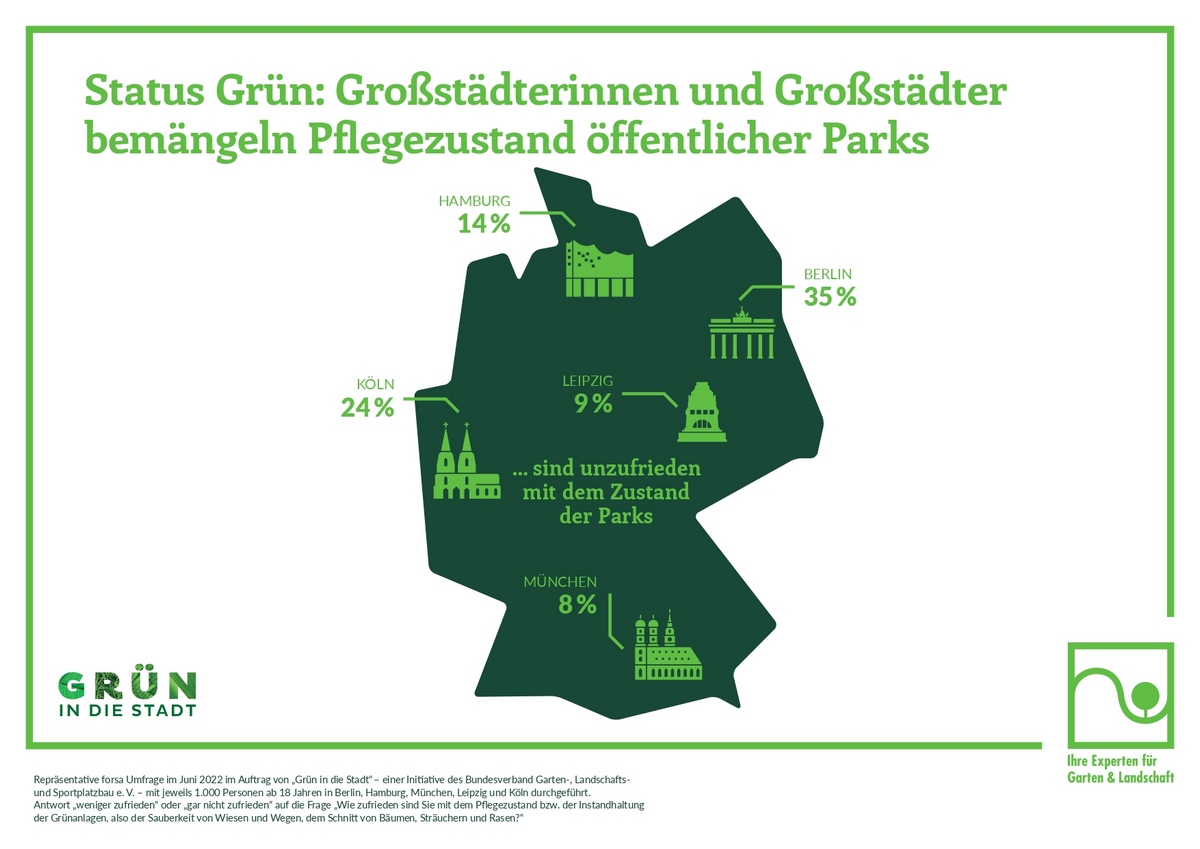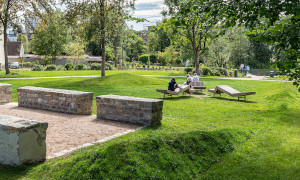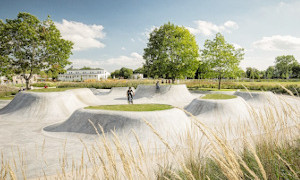Hamburg, Leipzig or Munich - their residents are very satisfied with the number, design and state of maintenance of the public green spaces in their city. The situation is very different for residents of Berlin and Cologne. Particularly in the capital and the Rhine metropolis, the number, state of maintenance and design of urban green spaces cause less enthusiasm. This is the result of a recent representative survey by the "Green in the City" initiative.
While in Cologne, for example, only 65 percent of respondents are (very) satisfied with the number of urban parks and green oases, this is the case for 82 percent of Hamburg residents and 81 percent of Munich residents.

When it comes to assessing the state of maintenance of green spaces, Berlin comes in a distant second. Around one in three respondents in Berlin is dissatisfied with the state of maintenance of the city's parks (compared to Hamburg: 14 percent, Cologne: 24 percent; Leipzig: nine percent; Munich: eight percent). And when it comes to the attractive design of urban green spaces, the capital's residents (20 percent) are also the most dissatisfied compared with the other major cities. This is the result of the city comparison, which was carried out by Forsa in June 2022 on behalf of "Grün in die Stadt" (Green in the City) - an initiative of the Bundesverband Garten-, Landschafts- und Sportplatzbau e. V. (BGL) - with 1,000 people aged 18 and over in Berlin, Hamburg, Munich, Leipzig and Cologne.
In all five major German cities, around one-third of respondents have no access to a private garden or landscaped courtyard. Accordingly, people regularly use the public green spaces on offer. The main reasons given by all city dwellers for visiting parks and the like are relaxation and strengthening their own sense of well-being. More than 90 percent of the residents of the five cities also agree on the contribution of urban parks and green spaces to nature and climate protection.
"The results show that urban parks, gardens and green spaces are important for the quality of life in Germany's major cities. This is also because they are the only way for many of the residents to get out into the green," says Jan Paul, spokesman for the "Green in the City" initiative and BGL vice president, commenting on the results. "With our initiative, we want to encourage municipal decision-makers:inside: Take advantage of the numerous funding programs offered by the federal government and the EU for the preservation and further development of urban green spaces, call them up and continue to actively invest in green cities!"
to the Forsa metropolis comparison
- Latitude: 0
- Longitude: 0


